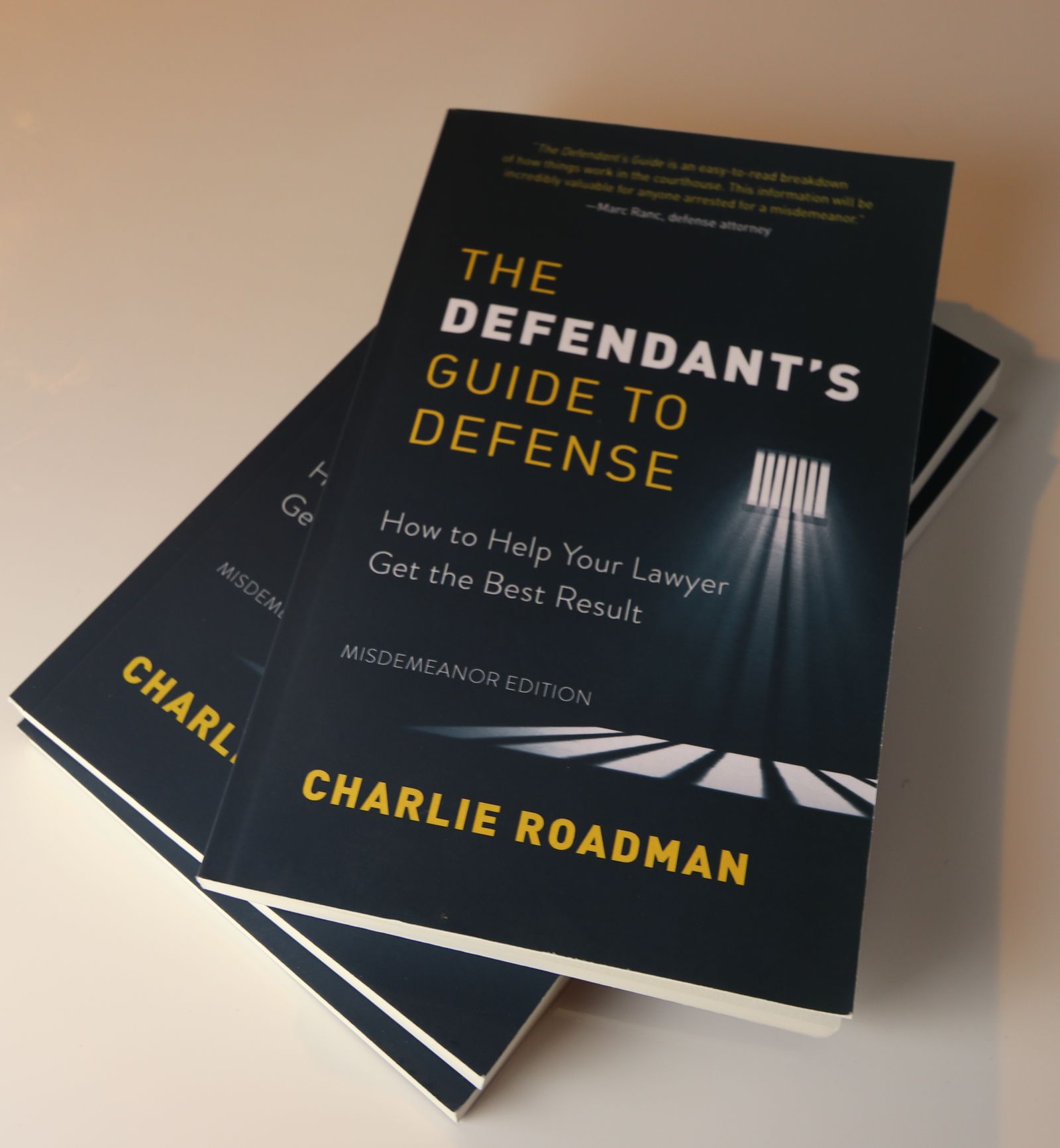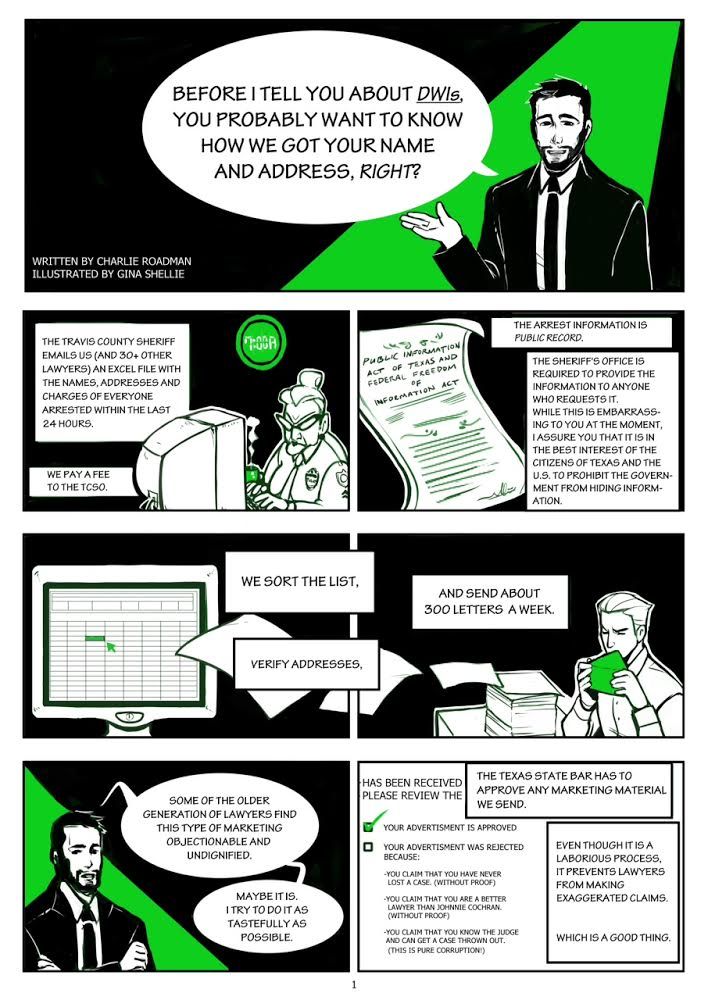Defense Attorney Charlie Roadman's book now available on Amazon
"Following the advice inside The Defendant's Guide will absolutely increase the chances of getting a misdemeanor case dismissed." - William Hines, Former Prosecutor
The Defendant’s Guide to Defense describes how to get the best result by completing tasks, setting personal goals, and gathering documents that will help your lawyer negotiate on your behalf.
The Probable Cause (P.C.) Affidavit
Q: What is the probable cause (PC) affidavit?
A: The PC affidavit is a summary of the evidence and circumstances of the arrest. It is written by the arresting officer and given to a judge to review.
Q: Why do they write a PC affidavit?
A: A probable cause affidavit is required when an officer makes a “warrantless arrest” – which is when the officer arrests someone without getting permission from a judge first. Typically, an officer sees someone break the law and immediately arrests the person. After the suspect is brought to the jail, the police officer writes the PC affidavit, swears that it is true and then gives it to a judge to review. The judge makes sure that there was sufficient evidence (probable cause) to arrest the person. This is done to make sure the police aren’t just arresting people for no reason.
Q: I disagree with some of claims made on the PC affidavit. What can I do?
A: The only thing that can be done at this point is to fight the case in court. It should be noted that the PC affidavit is not “evidence” itself. It is only a summary of what the officer claims the evidence is.
Q: There is more to the story than what is on the PC affidavit. How do I get my side of the story to the judge?
A: The PC affidavit won’t include everything about the situation – just the basics of why the officer thinks you broke the law. The officer also writes a more detailed description of the arrest in the “offense report.” This is the narrative that the prosecutors will review. The offense report typically includes much more information than the PC affidavit. We are not entitled to a copy of the offense report until much later in the process (usually two months or so). We will convey any additional information about the incident to the prosecutors.
Q: I have a warrant based on these allegations. What can I do?
A: It depends on the charges and the amount of the bonds. Call us and we will explain your options.
Q: Can you call the police officer and tell them my side of the story? Can you get them to recall the warrant?
A: No. Unless we have incontrovertible proof that you are completely innocent (such as a video that proves you didn’t do it), the police officer will not change his/her mind based on your version of the events. They will tell us to talk to the prosecutors in court.
Q: How did you get a copy of my PC affidavit?
A: We walk over to the clerk’s office and request a copy. PC affidavits are public documents.
Q: Can I get a copy of the offense report?
A: Not immediately, and only through your attorney. Offense reports are not public documents. They are considered “work product” of law enforcement. Eventually, your attorney will be able to get a copy. But not for two months or so.
Q: I have some more questions. Can I call you?
A: Absolutely. Call our office at (512) 472-1113, e-mail us at charlie@roadmanlaw.com, or fill out the form below.
We will email you a copy of the p.C. affidavit.
- The probable cause affidavit is a summary of the allegations against you. It is the document used by the judge to set your bond. It is not part of the release paperwork. This is a free service and there is no obligation to hire us. Email us with your name and date of birth. Put "PC Request" in the subject line.




